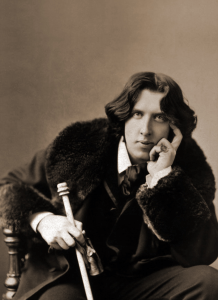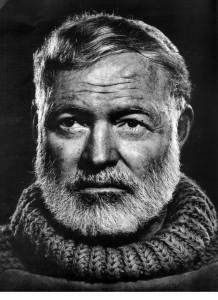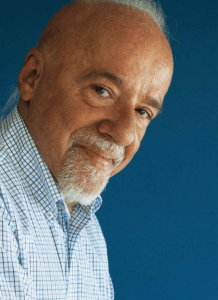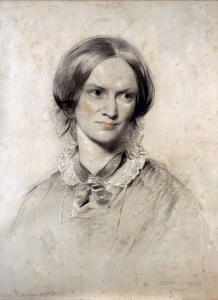“It is never too late to be who you might have been.” ~ George Eliot
Someone once said that there are two essential things that will make you wise: the books you read and the people you meet. With that thought in mind, who could have better advice to give than an author? Wisdom can be gained, not just from the words of scholars, but also from those that have lived with struggles. Many famous authors have lived lives full of heartbreak and adversity, and their thoughts and writings have given us much to think about for centuries.
We are already well into 2024, and our resolutions may have stuck or be long forgotten, but I think we can all agree that we want to be a little healthier, a little happier, and maybe just a little wiser.
Here are some great quotes from past and present authors whose lives were not easy, but still inspire us to this day!

Oscar Wilde was an Anglo-Irish playwright, novelist, poet, and critic. He is regarded as one of the greatest playwrights of the Victorian Era. In his lifetime he wrote nine plays, one novel, and numerous poems, short stories, and essays. His greatest talent was for writing plays. Four of his plays were highly acclaimed. Sadly, in the year 1900, he died without a penny to his name staying in a cheap Paris hotel. In addition to his books featured below, there are plenty of biographies and books about his colorful life and struggles.
“The only difference between the saint and the sinner is that every saint has a past, and every sinner has a future.”
“To live is the rarest thing in the world. Most people exist, that is all.”
“You can never be overdressed or overeducated.”
“In your soul are infinitely precious things that cannot be taken from you.”
Oscar Wilde, Complete Collection
The Fisherman and His Soul and Other Fairy Tales
The Importance of Being Earnest
J

Ernest Hemingway
I think it is safe to say we have all heard of Hemingway. He was an American journalist, short-story writer, and novelist. His writing style and published works greatly influenced many writers of the 20th century.
Hemingway began his writing career at seventeen as a journalist for a newspaper in Kansas City. He once said that to write about life, first, you must live it, and he certainly did just that! He drove an ambulance in World War I, survived two plane crashes, and reported on a ship off the beach of Normandy on D-Day. In 1954, he won the Nobel Prize in Literature, and in 1960 he won the Pulitzer Prize. He published seven novels, six short-story collections, and two nonfiction works. Despite all his accomplishments, he struggled with alcoholism and mental illness, especially in his later years, and took his own life in 1961.
“Never go on trips with anyone you do not love.”
“There is no friend as loyal as a book.”
“The world breaks everyone and afterwards many are strong at the broken places.”
“When people talk listen completely. Don’t be thinking about what you are going to say. Most people never listen.”
The Letters of Ernest Hemingway

Paulo Coelho
Most people know him as the author of the bestselling novel, The Alchemist. It was a big hit that made him the bestselling Portuguese-language author of all time, but his success did not happen without struggle. Coelho was raised in Rio de Janeiro, and when he was 17, his parents committed him to a mental asylum in response to his rebellion against the conventions of his Roman Catholic upbringing. After finally being released three years later, he enrolled in law school to please his parents but dropped out within a year. He then went on to travel through several countries and found himself self-medicating with drugs. He eventually got arrested by the ruling military government. Soon after, he had a spiritual awakening and changed his life for the better.
“You drown not by falling into a river, but by staying submerged in it.”
“Be brave. Take risks. Nothing can substitute experience.”
“Tears are words that need to be written.”
“If you are brave enough to say goodbye, life will reward you with a new hello.”

Stephen King
He started writing as a child, when he would scribble out short stories for his friends and started publishing his own local newspaper with his brother David in 1959. It was called Dave’s Rag and sold for 5 cents an issue. Although he was a writer at heart, his original career goal was to be a teacher. While writing short stories, he supported himself by teaching and doing janitorial work, along with other jobs that came his way. His first novel, Carrie, about a tormented teenage girl with telekinetic powers, was an instant success once it was published, but it almost did not happen. He threw away the manuscript after being rejected 30 times by publishers, but his wife pulled it out and after another submission, the rest is history.
That is not the only rough patch that King went through. Even though his writing career was going well, his personal life was a struggle with addiction to alcohol and other drugs. He has been quoted as saying that he could barely remember writing the bestselling horror, Cujo. His family and friends did stage an intervention during that time in the 70s, and he has been sober ever since. You might think that this is the end of his difficult times, but no, there is one more thing that King went through that almost took his life in 1999. He was out walking and got hit by a van. He managed to survive but almost lost his leg. He has since said that every day in the last 20 years has been a gift.
“Life is like a wheel. Sooner or later, it always comes around to where you started again.”
“Every book you pick up has its own lesson or lessons, and quite often the bad books have more to teach than the good ones.”
“When asked, ‘how do you write?’ I invariably answer, ‘one word at a time.’”
“If you don’t have the time to read, you don’t have the time or the tools to write.”

Charlotte Bronte who is most known for her book Jane Eyre was born in April 1816. She was a sister to six siblings and grew up with a dismal state of affairs in the remote English village of Haworth. Two of her sisters wrote famous books as well: Emily, and Anne Bronte. Her early life was full of tragedies, losing her mother at 5 years old to cancer and two sisters as children to tuberculosis. Charlotte survived her remaining siblings who succumbed to tuberculosis as well. To add insult to injury, they all died within a 9-month period.
It is easy to see that her life was filled with mourning and the loss of family, but her love life had its own tragic tale. She fell madly in love with a married man seven years her elder. Constantin Hegar and his wife ran a boarding school in Brussels where Charlotte and her younger sister taught and studied. His eccentric and strong ways were what drew her to him, but it was an unrequited love. She turned down four proposals but eventually said yes by marrying her father’s curate, Arthur Bell Nichols. The wonderful thing was that she came to truly realize that she loved him and enjoyed taking up her duties as a wife. Of course, she continued her writing as well. When pregnant with their first child, she was extremely sick, and she passed away at the age of 38. Sadly, none of the Bronte siblings lived past that age. A family of so much talent, but so much loss.
“A ruffled mind makes a restless pillow.”
“I try to avoid looking forward or backward and try to keep looking upward.”
“Look twice before you leap.”
“Better to be without logic than without feeling.”



Add a comment to: Wisdom from Writers in Struggle & Triumph